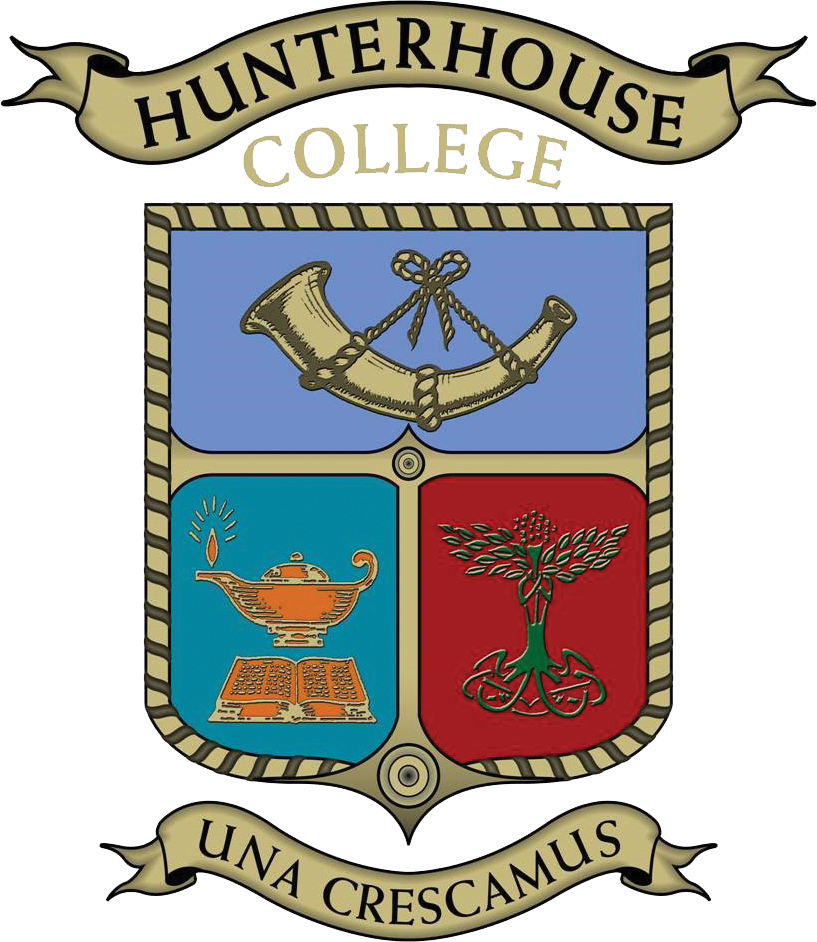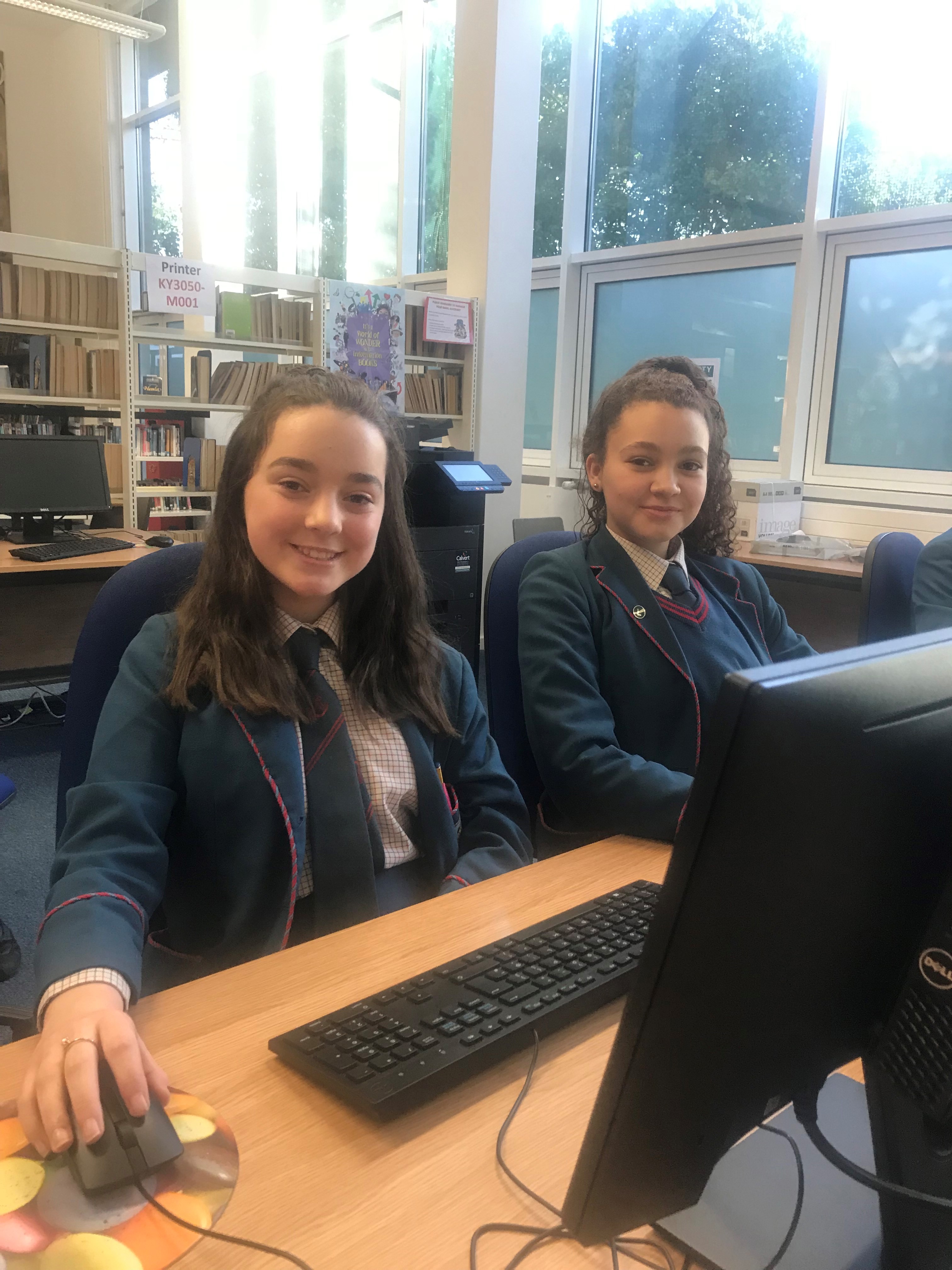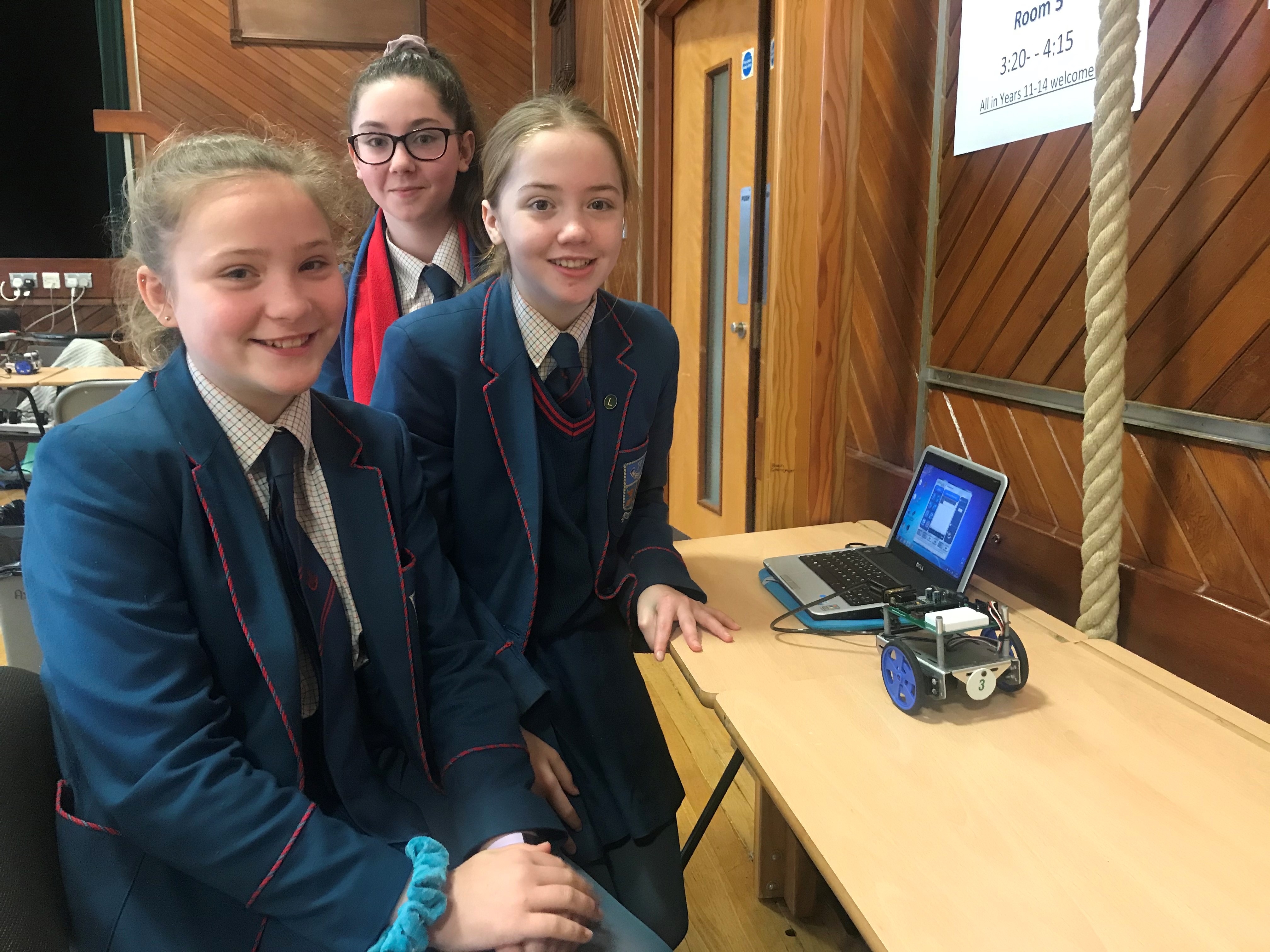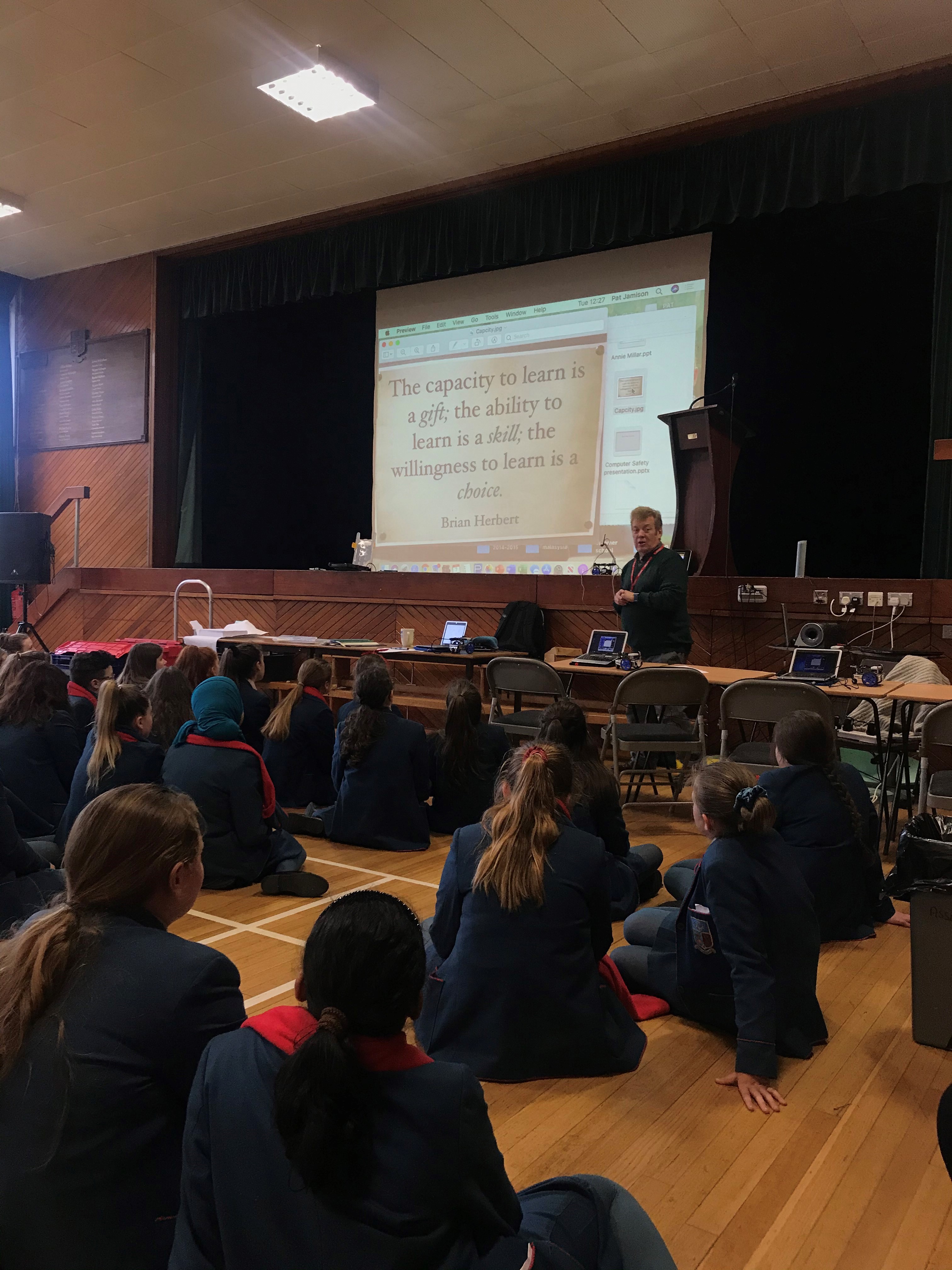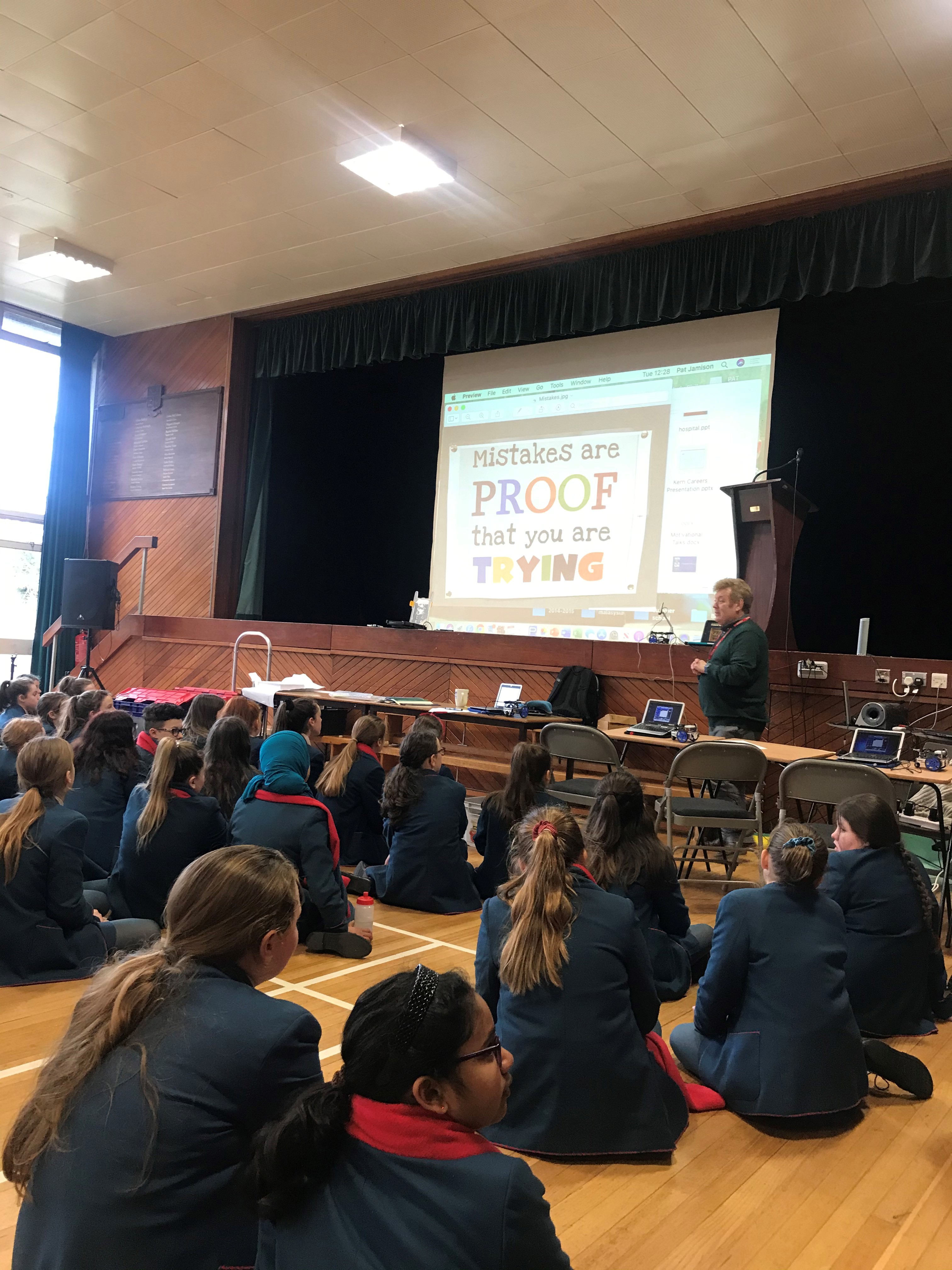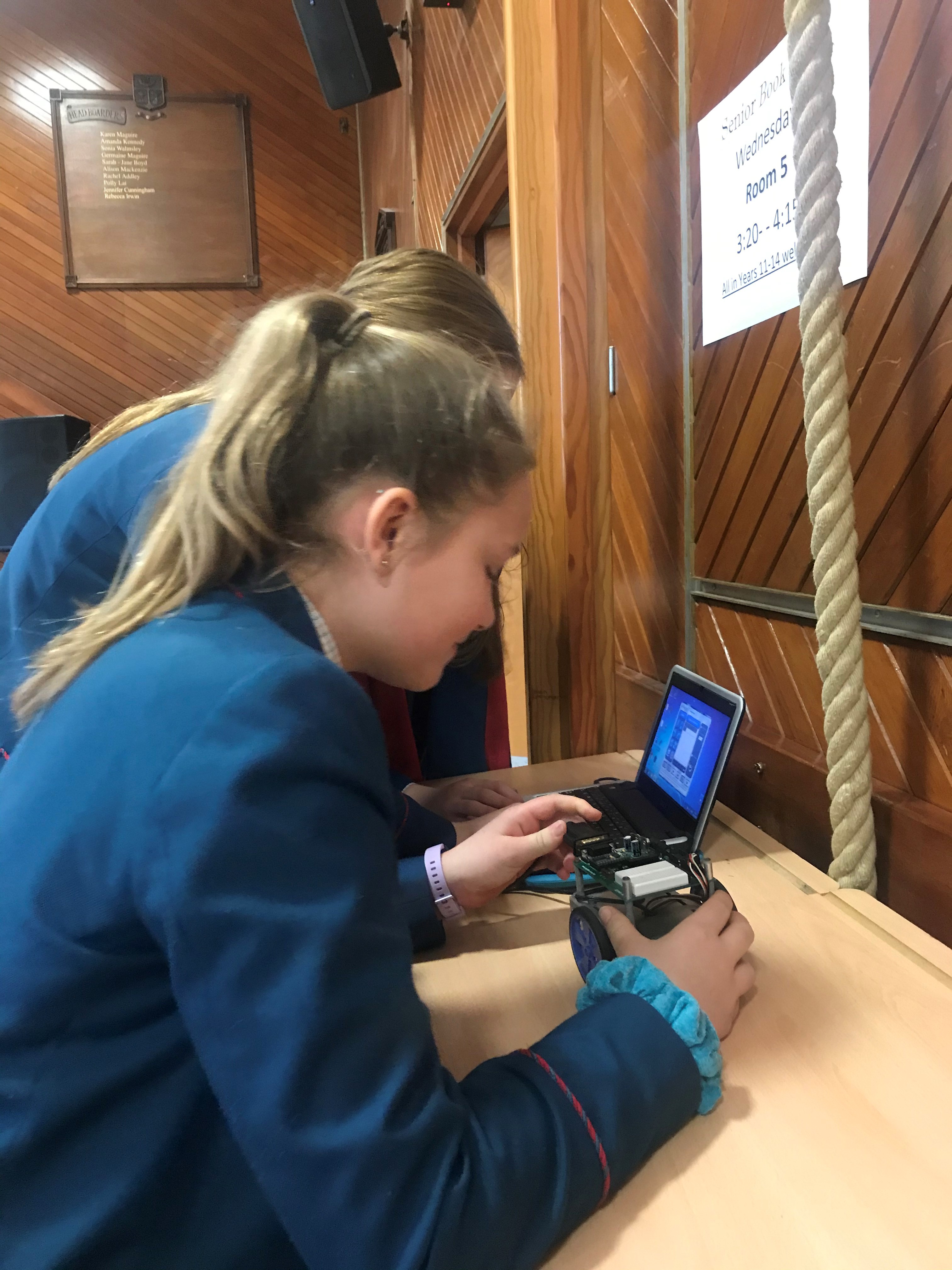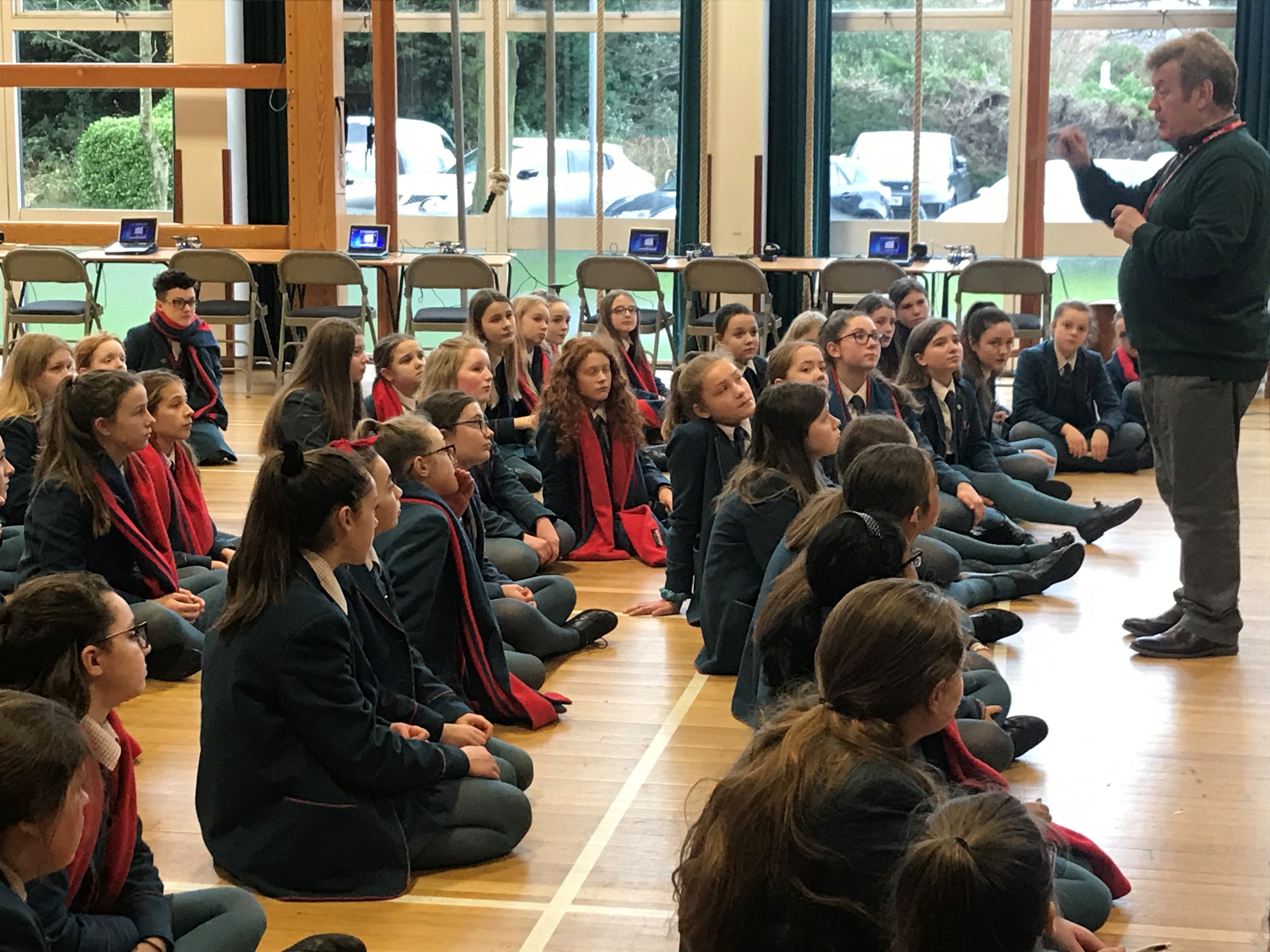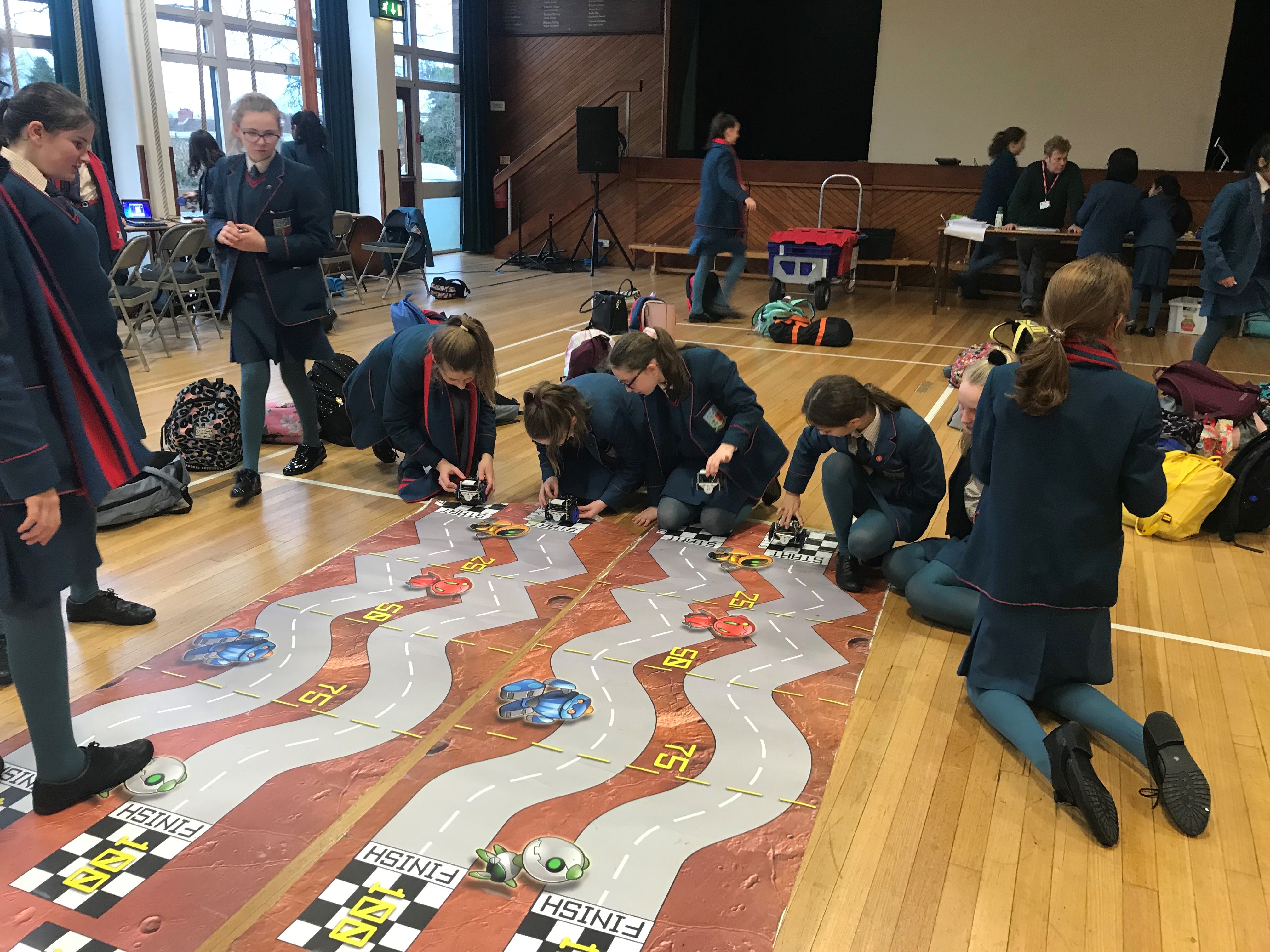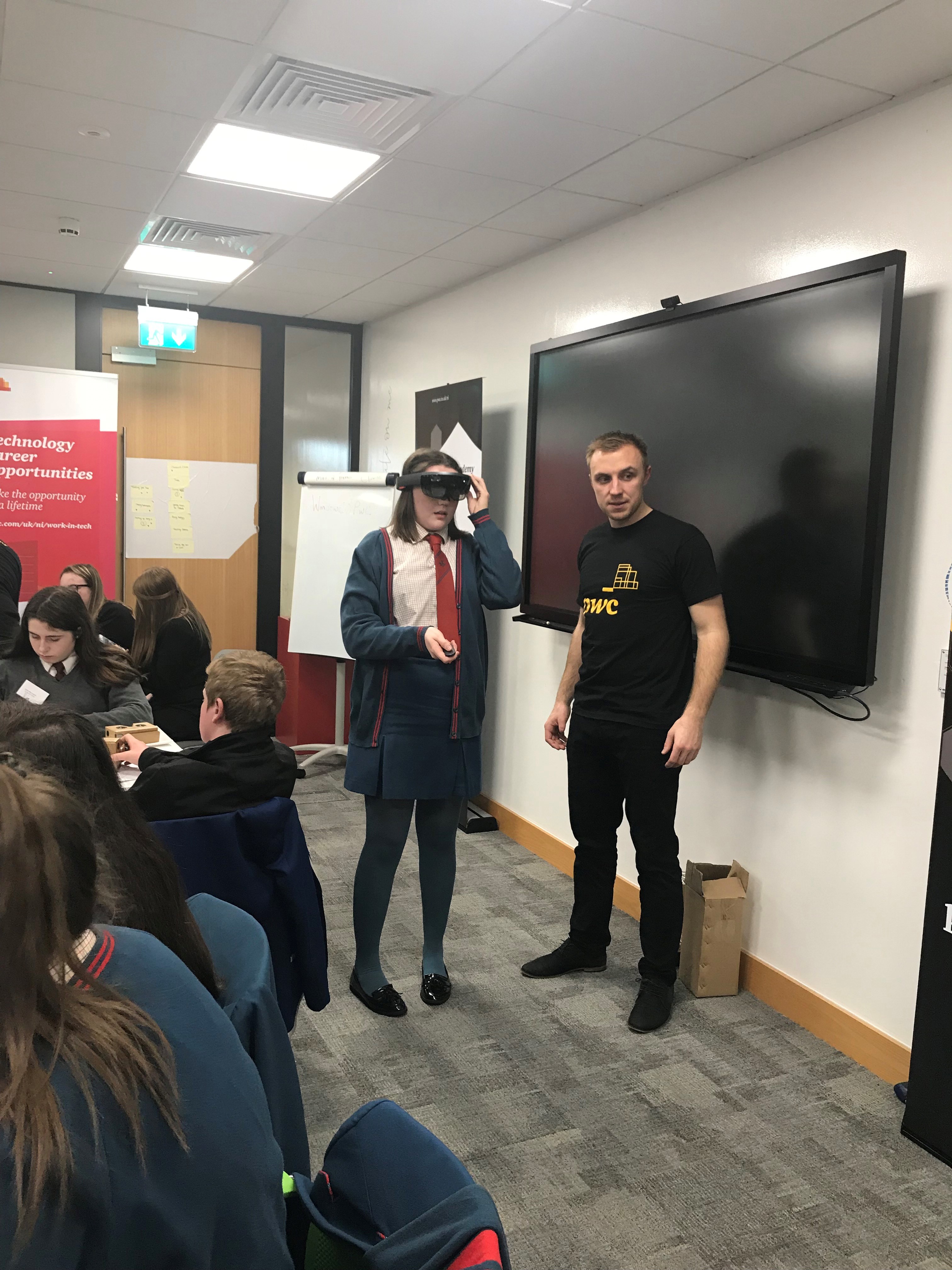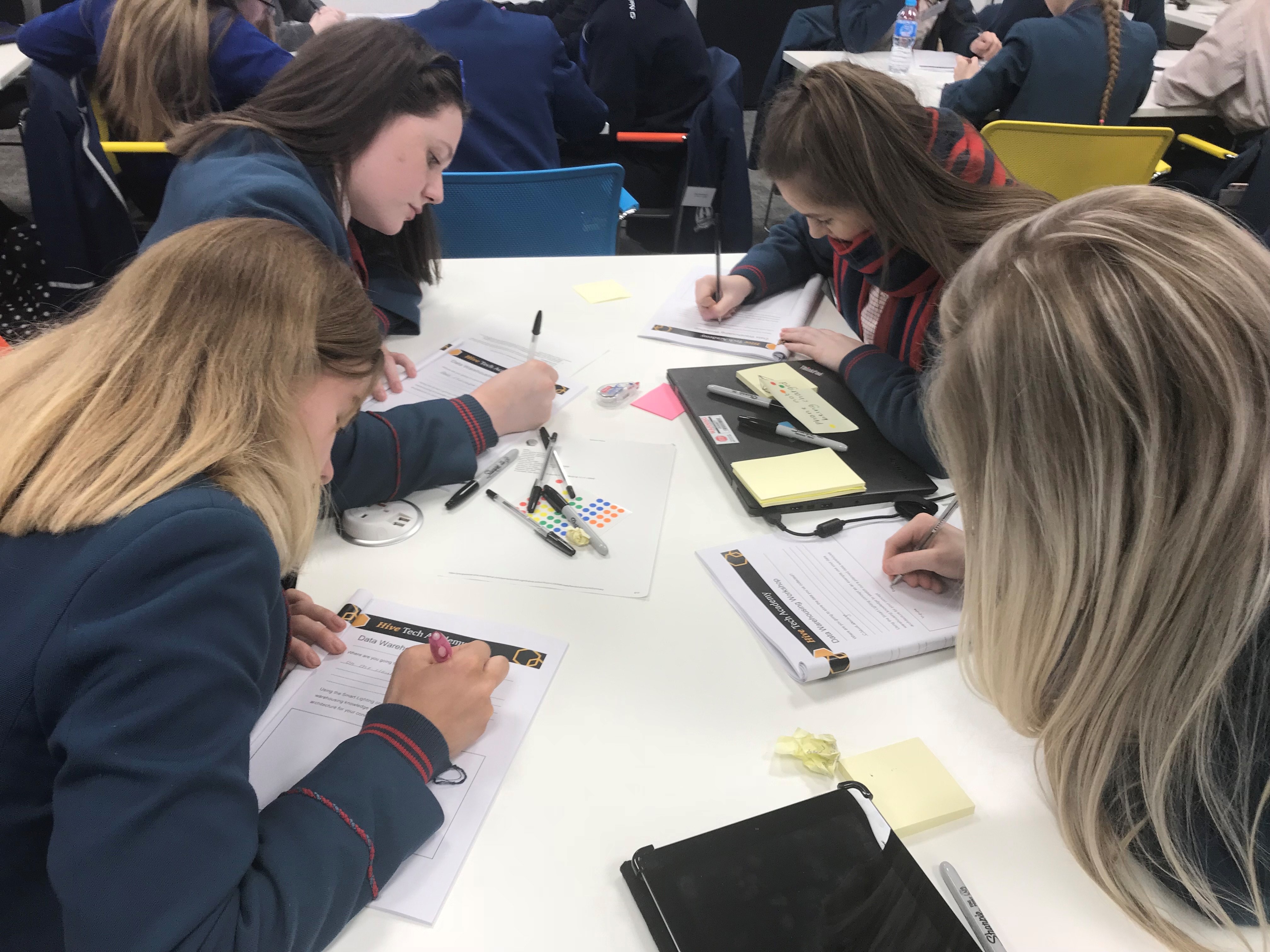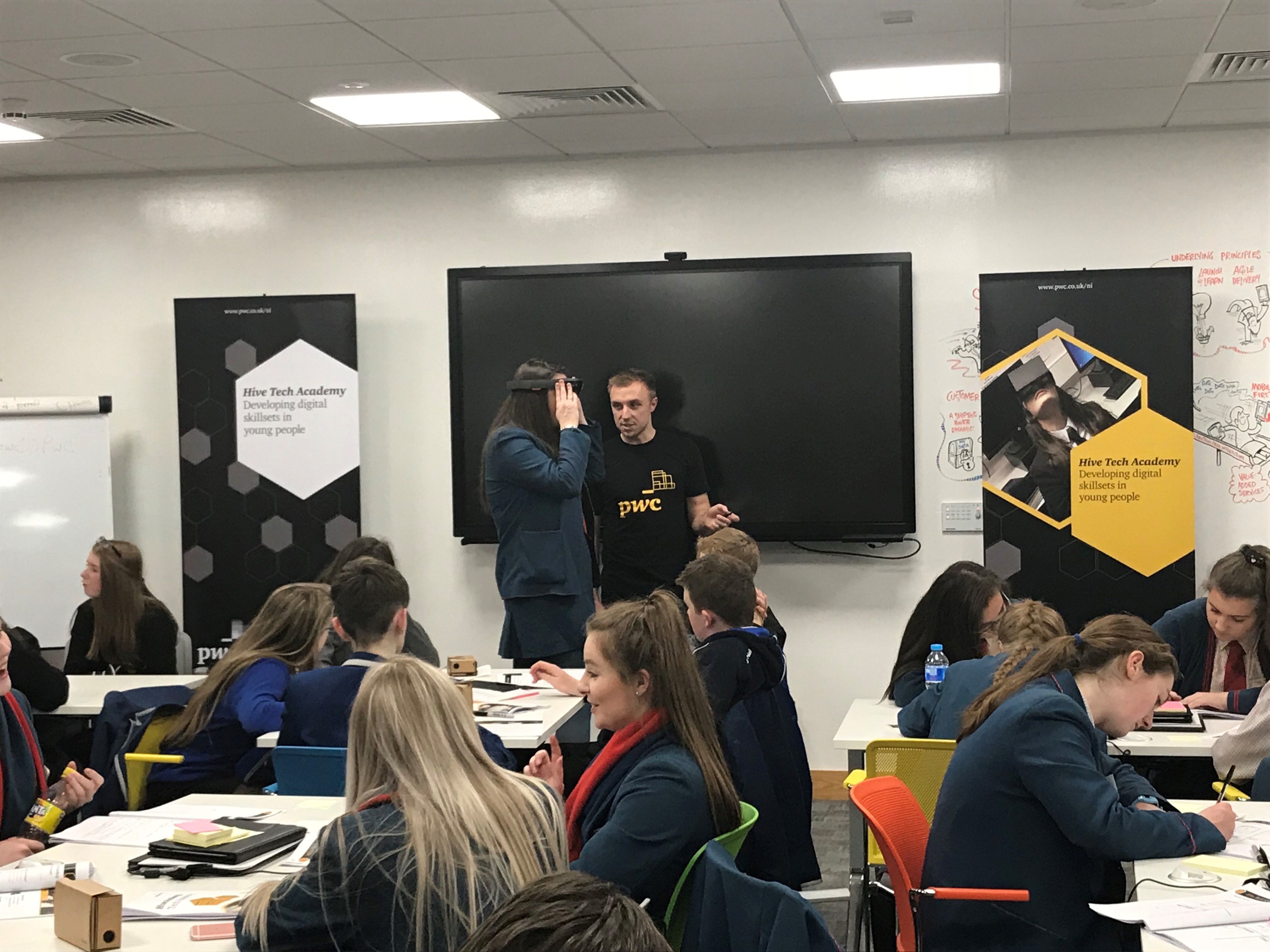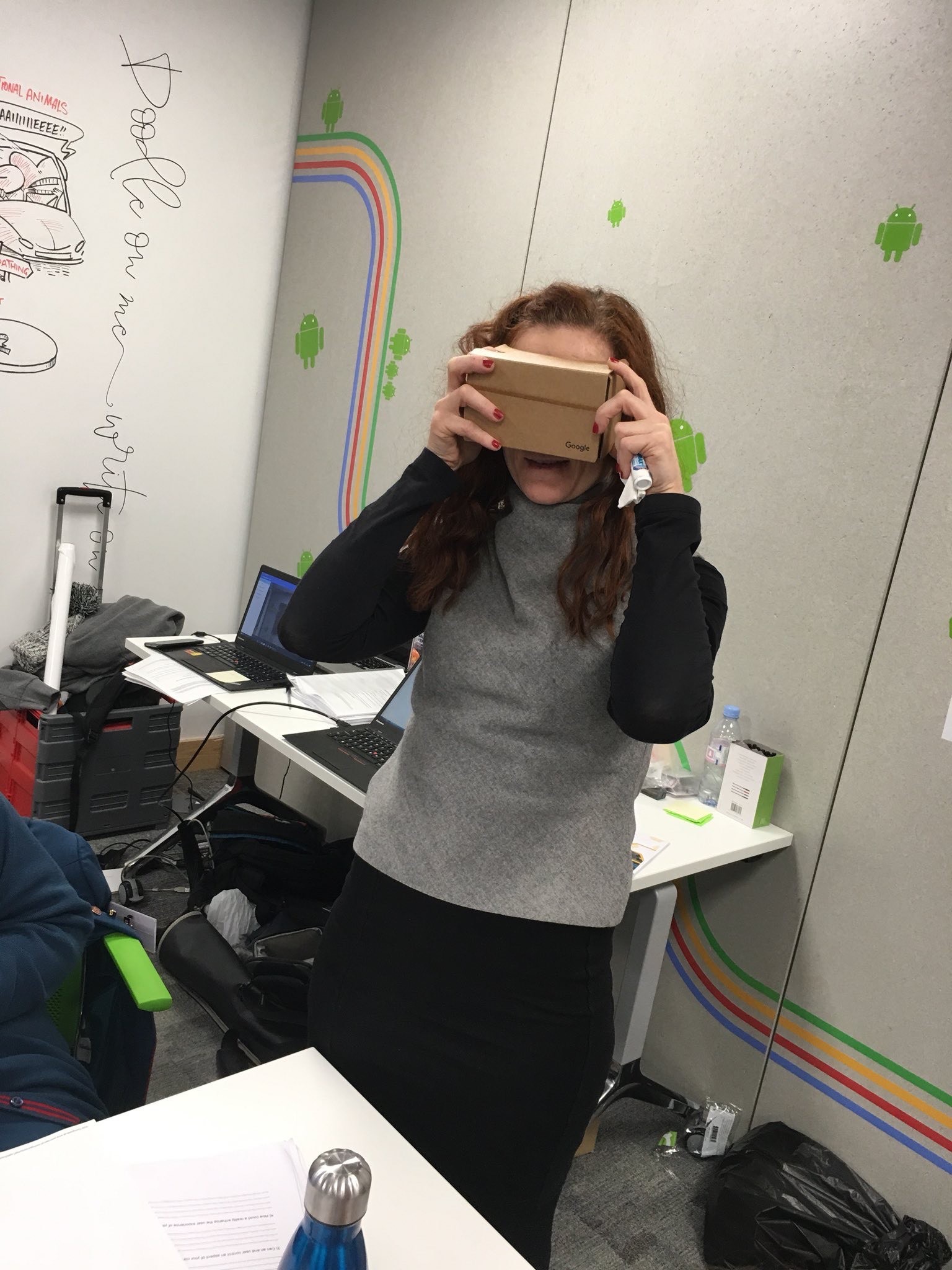Digital Technology & ICT
Everywhere that you look in today’s eventful world you can see how the use of ICT has an influence in our everyday lives.
The study of ICT will help provide you with the ANALYTICAL (thinking); COMMUNICATION (writing, talking, giving presentations) and TECHNICAL skills (using a computer at a high level) that you will need when you enter the world of work, communication and socialisation.
As computers become a vital part of our lives, the need for computer savvy people increases. NI Direct states that ICT is extremely important to the Northern Ireland economy and there is a huge variety of jobs such as software development, database development, systems architecture and internet specialist which are the heart of every organisation and is central to our daily lives.
According to Computer Weekly Computing graduates:
‘enjoy higher levels of employment better rates of pay and more career opportunities than the general graduate…’
ICT at Hunterhouse College is a thriving subject which impacts on a range of subjects and teaches skills which are required and can be utilised throughout your school career. It is an extremely popular and enjoyable subject. Beginning to study this subject at school will ensure that students are ahead of the game in accessing what is the biggest economic growth area in Northern Ireland.
Subject Content
KS3 ICT
Our approach at KS3 has three main elements:
- Discrete ICT in Years 8 to 10
- Programming/Coding workshops
- Cross-curricular ICT use in all KS3 subjects to support the CCEA Using ICT (UICT) scheme
Discrete ICT Skills Classes:
Practical
In Years 8 to 10, students will learn how to use ICT safely and effectively. The skills incorporate:
- E-Safety – Staying safe online
- Use of the latest software packages
- An introduction to programming
- Exploring Virtual Reality
- Robotics
Theory
Students will learn:
- The history of computers
- Health and Safety
- Computer Hardware
- Computer Software
- Binary
- Data and Information
- Network technologies
Programming
All students in Years 8-10 will learn basic computer programming techniques.
In Year 8: Microbit using Micro Python
In Year 9: HTML and website design
In Year 10: C# and Gaming
- parameters
- variables
- conditional statements
- iteration loops
Cross-Curricular ICT
This is where ICT skills are being embedded in learning and teaching across the KS3 curriculum. It is designed to provide students with opportunities to acquire and develop knowledge, skills and understanding of Using ICT and to apply these across all Areas of Learning. The focus is on using skills in the following areas:
- Presentation
- Working with Sound
- Researching
- Using Modelling
- Online Collaboration
- Desktop Publishing
Students also learn about safe online practices as part of the pastoral programme at KS3.
GCSE Digital Technology – Multimedia
Full Course Digital Technology is offered to students in Year 11. The specification has three units:
- Unit 1: Digital Technology (Compulsory)
- Unit 2: Digital Authoring Concepts
- Unit 3: Digital Authoring Practice
The table below summarises the structure of the GCSE Course.
Route A: Multimedia
| Content | Assessment | Weightings | |
| Compulsory Core Unit |
Unit 1: Digital Technology |
External written examination 1 hour |
30% |
| Multimedia Units |
Unit 2: Digital Authoring Concepts |
External written examination 1 hour 30 mins |
40% |
| Unit 3: Digital Authoring Practice |
Controlled Assessment | 30% | |
A-Level Digital Technology
Progression to A-level is a very popular route with many students deciding to continue their studies. A-level Digital Technology can be chosen as an AS subject and can then be continued at A2 level. The table below summarises the structure of the A-Level Course.
| Content | Assessment | Weightings |
| AS 1: Approaches to Systems Development |
External written examination 1 hour 30 mins Students answer short and extended questions based on Approaches to Systems Development. |
50% of AS 20% of A-Level |
| AS 2: Fundamentals of Digital Technology |
External written examination 1 hour 30 mins Students answer short and extended questions based on the Fundamentals of Digital Technology. |
50% of AS 20% of A-Level |
| A2 1: Information Systems |
External written examination 2 hours 30 mins Students answer short and extended questions based on Information Systems. |
40% of A-Level |
| A2 2: Application Development (Case Study) |
Internal Assessment Students compile a portfolio showing evidence of the analysis, design, development, testing and evaluation of an application for a specified end user. |
20% of A-Level |
Coding Club
If you want to advance your skills, we run a coding club after school every week for an hour, its aim is to encourage, challenge, enthuse and inform students about ICT. Members complete a number of tasks and challenges to enhance their coding skills in a fun and relaxed environment.
For more information, contact Mrs K Strain (Head of ICT Department)
Everywhere that you look in today’s eventful world you can see how the use of ICT has an influence in our everyday lives.
The study of ICT will help provide you with the ANALYTICAL (thinking); COMMUNICATION (writing, talking, giving presentations) and TECHNICAL skills (using a computer at a high level) that you will need when you enter the world of work, communication and socialisation.
As computers become a vital part of our lives, the need for computer savvy people increases. NI Direct states that ICT is extremely important to the Northern Ireland economy and there is a huge variety of jobs such as software development, database development, systems architecture and internet specialist which are the heart of every organisation and is central to our daily lives.
According to Computer Weekly Computing graduates:
‘enjoy higher levels of employment better rates of pay and more career opportunities than the general graduate…’
ICT at Hunterhouse College is a thriving subject which impacts on a range of subjects and teaches skills which are required and can be utilised throughout your school career. It is an extremely popular and enjoyable subject. Beginning to study this subject at school will ensure that students are ahead of the game in accessing what is the biggest economic growth area in Northern Ireland.
Subject Content
KS3 ICT
Our approach at KS3 has three main elements:
- Discrete ICT in Years 8 to 10
- Programming/Coding workshops
- Cross-curricular ICT use in all KS3 subjects to support the CCEA Using ICT (UICT) scheme
Discrete ICT Skills Classes:
Practical
In Years 8 to 10, students will learn how to use ICT safely and effectively. The skills incorporate:
- E-Safety – Staying safe online
- Use of the latest software packages
- An introduction to programming
- Exploring Virtual Reality
- Robotics
Theory
Students will learn:
- The history of computers
- Health and Safety
- Computer Hardware
- Computer Software
- Binary
- Data and Information
- Network technologies
Programming
All students in Years 8-10 will learn basic computer programming techniques.
In Year 8: Microbit using Micro Python
In Year 9: HTML and website design
In Year 10: C# and Gaming
- parameters
- variables
- conditional statements
- iteration loops
Cross-Curricular ICT
This is where ICT skills are being embedded in learning and teaching across the KS3 curriculum. It is designed to provide students with opportunities to acquire and develop knowledge, skills and understanding of Using ICT and to apply these across all Areas of Learning. The focus is on using skills in the following areas:
- Presentation
- Working with Sound
- Researching
- Using Modelling
- Online Collaboration
- Desktop Publishing
Students also learn about safe online practices as part of the pastoral programme at KS3.
GCSE Digital Technology – Multimedia
Full Course Digital Technology is offered to students in Year 11. The specification has three units:
- Unit 1: Digital Technology (Compulsory)
- Unit 2: Digital Authoring Concepts
- Unit 3: Digital Authoring Practice
The table below summarises the structure of the GCSE Course.
Route A: Multimedia
| Content | Assessment | Weightings | |
| Compulsory Core Unit |
Unit 1: Digital Technology |
External written examination 1 hour |
30% |
| Multimedia Units |
Unit 2: Digital Authoring Concepts |
External written examination 1 hour 30 mins |
40% |
| Unit 3: Digital Authoring Practice |
Controlled Assessment | 30% | |
A-Level Digital Technology
Progression to A-level is a very popular route with many students deciding to continue their studies. A-level Digital Technology can be chosen as an AS subject and can then be continued at A2 level. The table below summarises the structure of the A-Level Course.
| Content | Assessment | Weightings |
| AS 1: Approaches to Systems Development |
External written examination 1 hour 30 mins Students answer short and extended questions based on Approaches to Systems Development. |
50% of AS 20% of A-Level |
| AS 2: Fundamentals of Digital Technology |
External written examination 1 hour 30 mins Students answer short and extended questions based on the Fundamentals of Digital Technology. |
50% of AS 20% of A-Level |
| A2 1: Information Systems |
External written examination 2 hours 30 mins Students answer short and extended questions based on Information Systems. |
40% of A-Level |
| A2 2: Application Development (Case Study) |
Internal Assessment Students compile a portfolio showing evidence of the analysis, design, development, testing and evaluation of an application for a specified end user. |
20% of A-Level |
Coding Club
If you want to advance your skills, we run a coding club after school every week for an hour, its aim is to encourage, challenge, enthuse and inform students about ICT. Members complete a number of tasks and challenges to enhance their coding skills in a fun and relaxed environment.
For more information, contact Mrs K Strain (Head of ICT Department)
